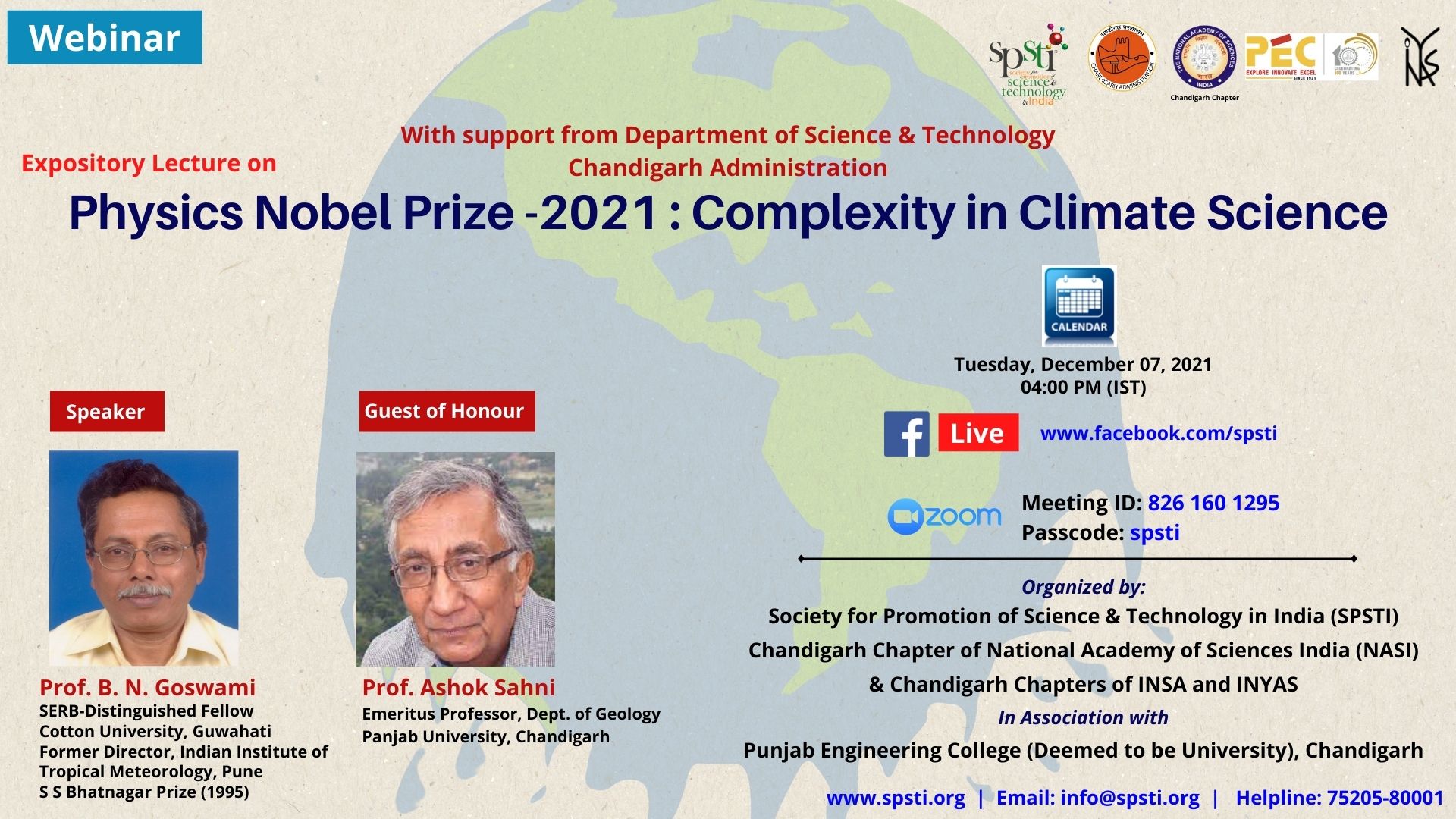Climate is what you expect, weather is what you get – Prof. B.N. Goswami
In the series of Nobel Prize Lectures being conducted by Society for Promotion of Science & Technology in India (SPSTI) with support from Department of Science and Technology, Chandigarh Administration in association with Chandigarh Chapters of National Academy of Sciences India, Indian National Science Academy & Indian National Young Academy of Sciences and Punjab Engineering College (Deemed to be University), Chandigarh, the sixth lecture was organized on “Complexity in Climate Science”. The lecture was delivered by Prof. B.N. Goswami, Former Director, Indian Institute of Tropical Meteorology, Pune.
Prof. Ashok Sahni, Emeritus Professor, Dept. of Geology, Panjab University, Chandigarh as Guest of Honor said we never thought that the Nobel Committee would consider this field to be considered for the prize.
Prof. Goswami in his lecture discussed the work of Nobel laureates Suki Manabe and Klaus Hasselmann. He said that the recognition that ‘complexity’ in physical systems is ubiquitous where apparent ‘chaos’ and ‘regularity’ co-exit and give feedback to each other led to the Nobel award for 2021 in Physics to Syukuro Manabe, Klaus Hasselmann and Giorgio Parisi “for groundbreaking contributions to our understanding of complex physical systems”. While Parisi, the third Nobel Laureate in Ohysics for 2021, discovered interplay of disorder and fluctuations in physical systems at atomic level, Manabe and Hasselmann unraveled interplay between chaotic weather to climate variability at planetary scales. The Prize is also recognition of Complexity in Climate Science and climate modeling by the Physics community. The lecture highlighted this Complexity in Climate Science and its relevance in the face of the current Climate Emergency. He apprised that Arrhenius made the first estimate that if Carbon Dioxide in the atmosphere is doubled, global temperature will increase by five degree Celsius. He said, the climate is probabilistic and not deterministic. Weather prediction or climate projection will always be associated with a small but unavoidable ‘uncertainty’.
Prof. Arun Grover, former VC, Panjab University, coordinated the lecture. Others present at the lecture were Prof. Keya Dharamvir, General Secretary, SPSTI, Prof. R. K. Kohli, President of Chandigarh Chapter of NASI, Prof. Rajiv Patnaik, Dept of Geology, PU, Prof. R. Baskar, IGNOU and many other members of SPSTI and associating organizations. The lecture was concluded with a vote of thanks by Shri Dharam Vir, IAS (Retd.), President, SPSTI.

